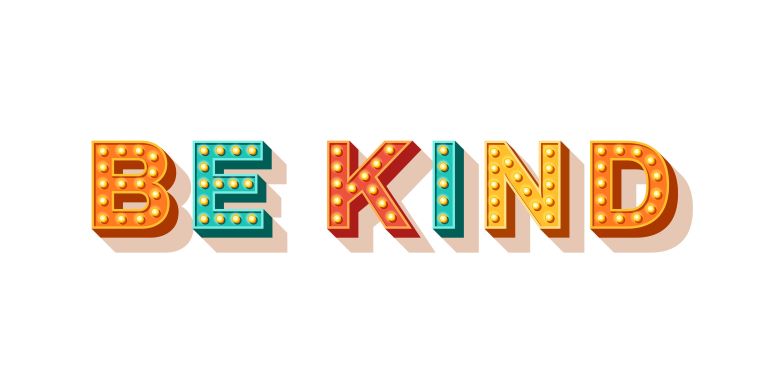4 ways to create a culture of kindness and empathy
Recognize the inspirational power of virtue, encourage and reward unselfish behavior, and make decency a prerequisite for leadership.

We could all use a huge dose of kindness, grace and understanding right now.
Displaying these admirable qualities isn’t just the right thing to do, or a nice “add-on” when you can find it at work. Research has shown that kindness can create a competitive business advantage. Here are four ways to create a kinder workplace:
1. Recognize the inspirational power of kindness. When he decided to step down from his dream job hosting “The Tonight Show” in January 2010, after NBC made a time slot change to make room for a Jay Leno program, talk show host Conan O’Brien was in a difficult place. His parting words on that final episode were, “Nobody in life gets exactly what they thought they were going to get. But if you work really hard and you’re kind, amazing things will happen. I’m telling you, amazing things will happen.” O’Brien’s focus on kindness in a moment of personal difficulty resonated profoundly, fueling countless inspirational memes.
Kindness can also become a rallying cry for positive change. Disney|ABC created its influential “Choose Kindness” campaign (#ChooseKindness) to help kids, families and influencers end bullying. Wouldn’t your workplace benefit from a similar initiative?
Consider how displaying–and rewarding–authentic kindness can inspire your team members, as we all endure a tumultuous, uncertain season together. As noted in this story by Todd Nordstrom, your ability to influence, persuade and lead people depends on how you treat them. He writes that being kind at work can inspire greater results, better ideas and improve relationships. But sometimes it takes a bit of inspiration and heroic storytelling to get the kindness ball rolling.
2. Encourage kind behavior. Daniel Lubetzky, founder and CEO of KIND LLC, ensures his company lives up to its name. The company’s mission statement is to “create a kinder, healthier world, one act, one snack at a time.” KIND reinforces its mission by recognizing each other’s acts of kindness with “Kindos,” or internal emails that offer praise, gratitude or celebration. As a result, people are encouraged to celebrate kindness and look for more opportunities to exhibit that behavior.
As Lubetzky says in Forbes, “It has become clearer that empathy and kindness offer a distinct competitive advantage. When I understand people with ease, I can accomplish more in both my business and my private life. Being able to access these skills is especially valuable in those moments when you feel threatened and your fight/flight instinct kicks in. If you can ask yourself questions like, ‘where is this person coming from?’ then you’re able to get to a more productive place quicker, thereby creating value for business and society.”
3. Make kindness a prerequisite of leadership. The old stereotype about the jerk in the corner office leading a corporation through nothing but grit, testosterone-fueled dominance and a willingness to throw anyone under the bus to increase profits is outdated. Emotionally intelligent, servant leaders understand that kindness isn’t about being soft or weak, but rather connecting deeply with your people by genuinely caring about them and the world we inhabit.
In this Inc. com piece about 10 outstanding CEOs practicing servant leadership, kindness is one of the common traits you’ll find. Cheryl Bachelder, the former CEO of Popeyes Louisiana Kitchen, topped the list. As detailed in her book, “Dare to Serve: How to Drive Superior Results by Serving Others,” she helped transform a stagnant restaurant brand using servant leadership, consciously creating a new workplace that treated people with respect and dignity while challenging them to perform at their highest levels. Bachelder and her team listened intently and responded to the needs of restaurant owners. Collaboration increased, and people were prioritized. This turnaround success resulted in Bachelder receiving the 2015 Norman Award from Nation’s Restaurant News for outstanding leadership.
4. Practice random acts of kindness. Little moments of thoughtfulness can go a long way. Did you put a fresh pot of coffee on for others before a meeting? Write a glowing email to the supervisor of that co-worker who always has reports ready before you ask for them? Here is a great list of 52 ways to show kindness at work, and Mindtools has created a video featuring ten ideas for random acts of kindness. Pick one, and give it a whirl at work today. It will give you a burst of warmth about yourself to be kind to others and see the positive impact of those efforts.
How have you seen kindness transform a workplace–-or the lack of it leave a culture in chaos? What is the kindest culture you’ve been a part of?
Shira Miller is a chief communications officer, two-time TEDx speaker, writer and certified executive coach.






